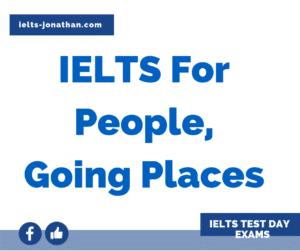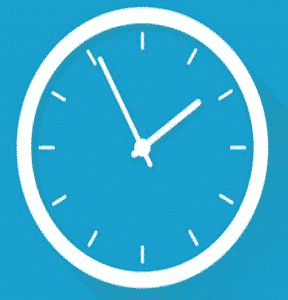IELTS Study – How can I be more productive with my time?
I recently attended a lecture on how to be a productive language learner.
I realised that the lecture could apply to IELTS learners, so I prepared some notes from the day. I am sure they will prove useful to IELTS Candidates.
Here they are below.
How can I be more productive with my time?
“The bad news is…time flies. The good news is…you are the pilot!” (Michael Altshuler)
“I write a ‘To Do’ list before bed at night”
- Excellent time management will give you – energy, enthusiasm and a positive mental attitude. These 3 things will help you become naturally more productive in your life
- All successful people work from lists.
- Every 1 minute you spend planning saves 10 minutes later on in the day.
- Subconsciously you begin working on your plans and goals for the next day while you are sleeping.
- Writing a ‘to do’ list before bed will help you sleep better as you are not worrying about what you need to do the next day. It will also encourage insights on waking in the morning.
- Remember that your future is created by what you do TODAY, not tomorrow.
“I use my study time well”
- Reading, Writing, Grammar, Speaking, Vocabulary
- Dedicate an evening a week for each one of the above?
- OR 20 minutes a day for each?
- Reviewing notes – This should be a daily priority.
- Reading a news article online – don’t worry about learning lots of new words…just exercise the reading muscle.
“I am in control of my time”
- “A journey of a thousand miles begins with a single step” (Lao Tzu)
- Take control over your time – reduces stress and increases self-esteem, thus giving you more energy! Think positively about yourself and your abilities. Negative self-talk leads to procrastination.
- Prioritise your tasks and then make an accurate, realistic timetable and stick to it.
- Aim for completion of each task before starting the next.
- Study in bite-size chunks ie. Blocks of 1 hour maximum and 10 minute breaks in between.
- Turn off all social media and only answer calls that are urgent.
- Reward yourself for completing your timetable with something you enjoy e.g. a nice drink or snack, an interesting talk on Youtube.
“I set myself clear, realistic goals…and I work hard to achieve them”
- What do you hope to achieve in life?
- Realistic daily, monthly and yearly goals are important. Write them down and believe in them. You can always change your goals in the future but you can’t if you haven’t made any.
- Don’t compare yourself to others. People are different. Focus on your own path and individual aims.
- “If you have a goal, write it down. If you do not write it down, you do not have a goal, you have a wish” (Steve Maraboli)
“I make the most of the golden hour”
- Almost all biographies / autobiographies of successful people have one thing in common: They go to bed at a reasonable hour, and wake up early (5am is normal!)
- You are most productive when you feel rested, alert and creative.
- Set your alarm and get up. Make a firm decision to never use the snooze button.
- Getting up earlier puts you in control of your day.
- Take 5 or ten minutes to sit quietly and look at your plan for the day.
- Make it a habit to read some inspirational literature that will motivate you and set the tone for the rest of the day – creates mental resilience.
“I cultivate excellent organisation skills”
- Keep your workspace clean and tidy. A messy room means a messy mind.
- Create a file with subsections.
- Keep a mind-map at the back of your portfolio for weekly vocabulary and update it in class time (don’t wait until you get home).
- Post-it notes on mirror / wardrobe door with words or phrases you are having difficulty remembering.
- Take care when making notes in class. Make an effort to write neatly, use highlighters and file dividers. This will save time when you get home in the evening.
- Are you an early bird or a night owl? When do you function best? Listen to your own biorhythm and organise your plan accordingly.
“I listen to myself”
- What gives you energy? Exercise / fresh air / coffee / chatting to a friend on the phone / watching an inspirational video / a power nap …
- Practise positive affirmations (operating instructions that you repeat until the conscious becomes subconscious)
For example: “I use my time well” or “I am a highly productive person”.
Write your own, keep them short and say them in a spirit of faith, acceptance and belief.
Eventually your external behaviour will reflect your internal programming. (The subtitles of this worksheet are also examples).
“I use my travel time wisely”
- Use your travel time to practise your English.
- If you get the bus or a lift in the car, listen to an English language podcast.
- If you walk to school – observe the world around you. Shop signs / newspaper headlines / Street names. What things can you see that you do not know the name of? Make the most of living in an English speaking country.
- If you walk with a friend, make a promise to each other that you will use your travel time to talk to each other in English – it’s the perfect time to practise!
Reading List
-
- The Seven Habits of Highly Effective People (Stephen R. Covey)
- Maximum Achievement (Brian Tracey)
- The Power of Positive Thinking (Norman Vincent Peale)
- Ted Talks on YouTube
And Finally:
“Don’t say you don’t have enough time. You have exactly the same number of hours per day that were given to Helen Keller, Pasteur, Michaelangelo, Mother Teresa, Leonardo da Vinci, Thomas Jefferson, and Albert Einstein…”
(H. Jackson Brown Jr.)
You can use tips and information on this website to help make it easier to obtain a higher score, but remember you still need to work at learning the language to be successful.
Please share to someone you know and in the meantime take a look at my Facebook Page and Website for IELTS answers and you can also join my Facebook Group here too.
Good Luck
Jonathan
I’m Jonathan
I’ve taught IELTS and University English in more than a dozen universities and schools around the world.
I’m a parent, traveller and passionate about language teaching and helping students achieve their dreams.
Whilst living in Austria or working in Asia, I run IELTS courses to help students get to where they want to be.
If you are serious about IELTS, connect with me to see how I can help you.







Was this helpful? Leave a comment :)